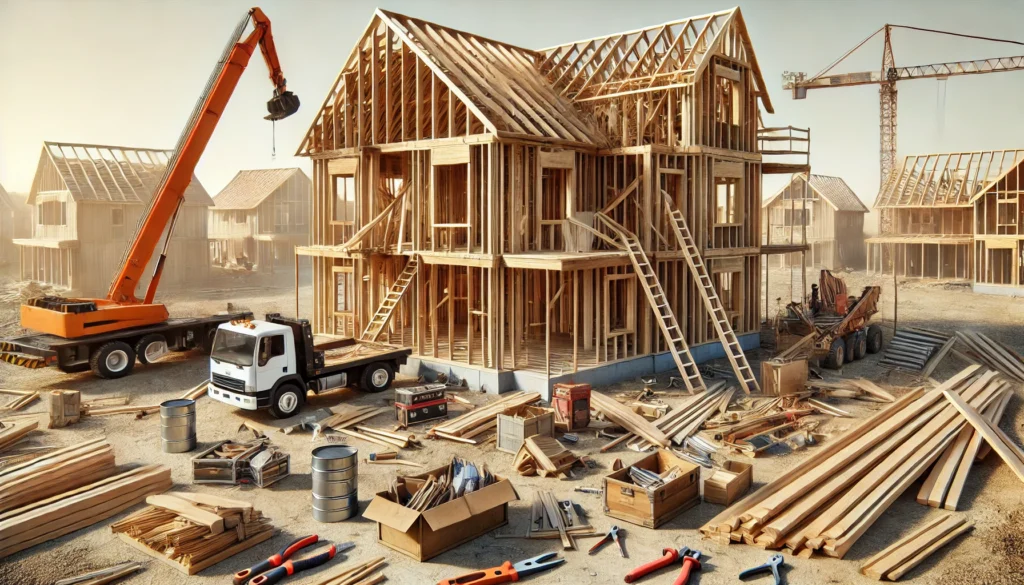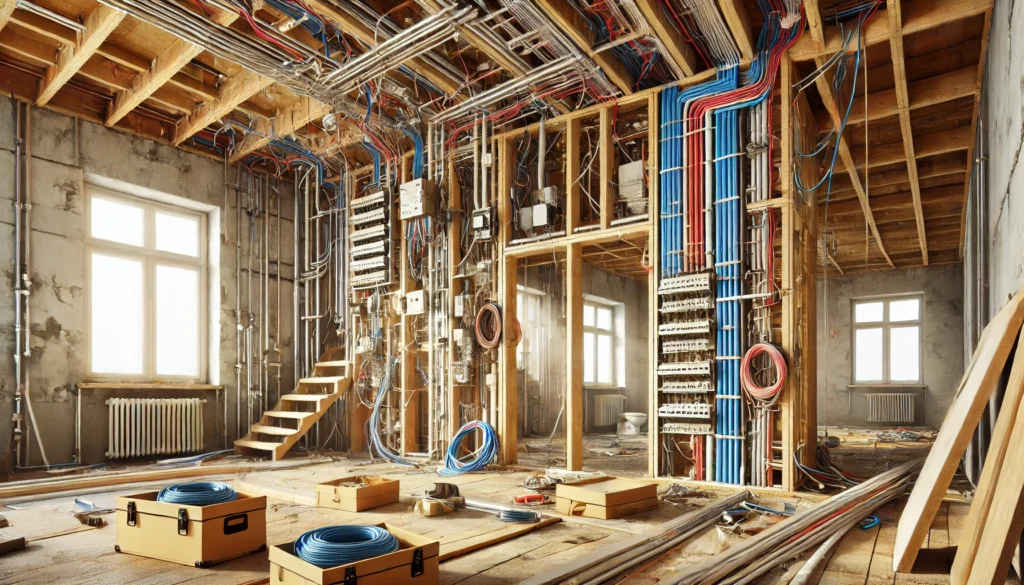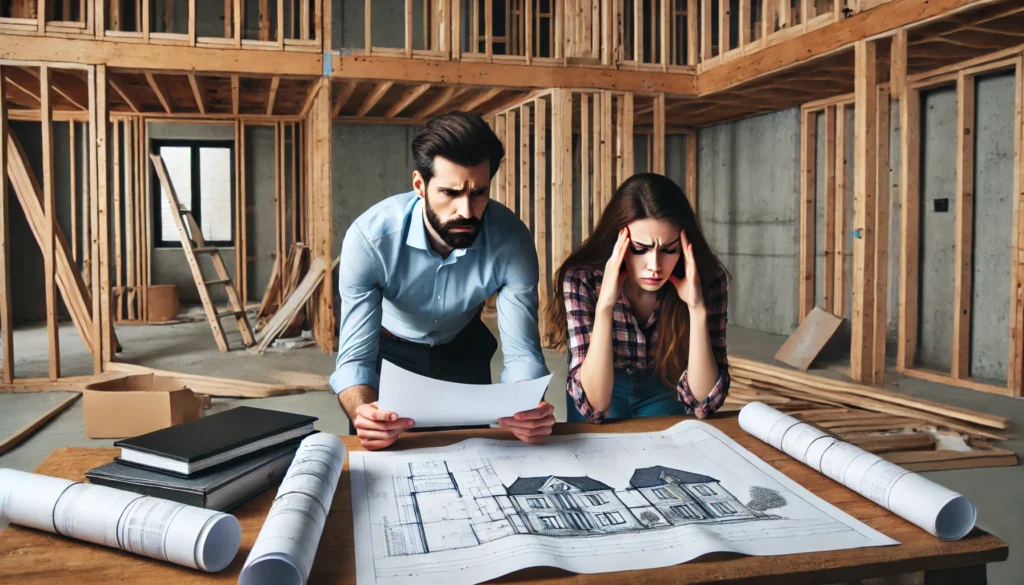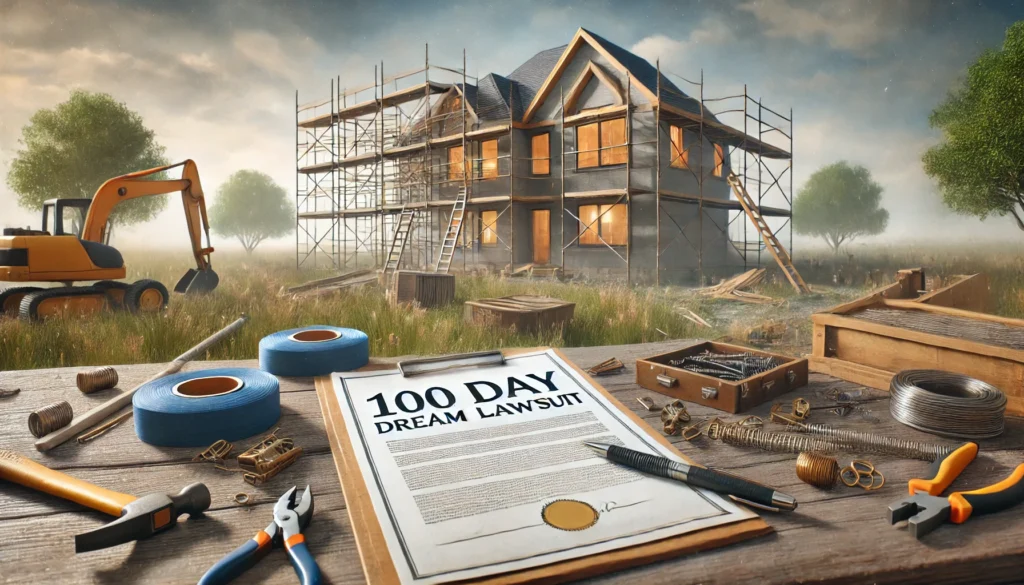The 100 Day Dream Home Lawsuit television show, which airs on HGTV, has gained considerable popularity by showcasing custom homes built in just 100 days. Hosted by Mika and Brian Kleinschmidt, the series appeals to many viewers by promising to take homebuyers through the journey of designing and building their dream home in an impressively short amount of time.
However, the show is now facing a significant lawsuit, as homeowners have raised serious concerns about delays, construction quality, and safety hazards in their homes. This article will provide a detailed look at the lawsuit, the issues raised by the homeowners, and the broader implications for the home construction industry and reality TV.
About “100 Day Dream Home”
100 Day Dream Home is an HGTV reality TV series that follows the dynamic duo Mika and Brian Kleinschmidt. The show’s premise is simple yet compelling: they design and construct custom homes in just 100 days. This ambitious timeline is part of the appeal, as viewers watch every aspect of the home construction process unfold on television.
Each episode showcases a different family or couple, who are guided through the process of creating their dream home from scratch. With each design, the Kleinschmidts aim to deliver personalized, beautiful homes that match their clients’ needs and desires. However, while the show’s premise has earned it many fans, the reality for some homeowners has been very different from what was promised. Legal disputes have raised concerns over the feasibility of building a quality home within such a tight timeframe.
Understanding the 100 Day Dream Home Lawsuit: Allegations and Implications
The 100 Day Dream Home lawsuit has drawn significant attention as homeowners allege that the promises made by the HGTV show fell short. The show, known for its ambitious premise of designing and building custom homes in just 100 days, is now under scrutiny for failing to meet these expectations.
Homeowners involved in the lawsuit claim that their homes were not completed on time, with some projects extending well beyond the promised 100-day timeline. Additionally, they report significant issues with construction quality, including foundation cracks, faulty wiring, and plumbing problems. These defects have not only caused inconvenience but, in some cases, posed serious safety risks, such as gas leaks and electrical shorts.
The lawsuit raises questions about whether the fast-paced nature of the show compromised the quality of the homes. Legal complaints include accusations of breach of contract, negligence, and misrepresentation. Homeowners are seeking compensation to cover repair costs and the financial burden caused by delays.
This legal battle has broader implications for reality TV and the construction industry. It highlights the risks of rushing complex projects for entertainment purposes and serves as a reminder for viewers to approach such promises with caution. The outcome of this lawsuit could impact the future of the show and spark discussions about transparency and accountability in media portrayals of homebuilding.
The Lawsuit: Key Details
Several homeowners involved with the show have filed lawsuits against the production company and the hosts. The main allegations include:
- Failure to Meet Deadlines: Despite the promise to complete homes within 100 days, many homeowners claim that their homes were not finished on time, leading to significant delays.
- Subpar Construction Quality: The lawsuits allege that the homes were not built to the expected standards of quality. Homeowners have reported multiple issues such as foundation cracks, poor electrical work, and plumbing problems.
- Breach of Contract: Homeowners argue that the show and its producers did not deliver on the terms set out in their contracts, which promised timely and high-quality construction.
- Misrepresentation: Some homeowners claim that they were misled by the promises made by the show, including the expectation of a smooth and efficient construction process.
These lawsuits seek compensation for damages, including the costs to repair faulty construction and extend living arrangements during delays.
Specific Complaints
Several recurring issues have been reported by the homeowners involved in the lawsuits. These include both construction defects and delays:
Structural Problems
Many homeowners have raised concerns about the foundation and overall structural integrity of their homes. Issues such as cracks in the foundation, unstable walls, and roofing problems have been highlighted as major concerns. These types of defects could lead to long-term safety issues for the homeowners.
Electrical and Plumbing Issues
Faulty wiring, improperly installed electrical outlets, and plumbing problems such as leaks and clogs have also been reported. In some cases, the homeowners expressed concerns about the safety risks posed by such issues, particularly with exposed wiring and gas line installations.
Delays in Completion
While the show claims that homes will be completed within 100 days, some homeowners say that their projects were not finished within the advertised timeframe. In some cases, delays have stretched the process out for several months, causing frustration and additional costs for the homeowners.
Safety Hazards
Several homeowners reported issues that could pose serious safety risks. These include gas leaks, electrical shorts, and improperly installed fixtures. Such hazards have made the homes unsafe to live in, leading to concerns about the overall quality of construction and oversight during the building process.
These complaints suggest that the rush to complete homes within a short period of time may have compromised both the quality and safety of the final product.
Legal and Financial Implications
The lawsuit brings with it serious legal and financial consequences for all parties involved. If the homeowners win their case, they could receive compensation for the damages caused by faulty construction. This may include the costs of repairs, the inconvenience caused by delays, and any safety issues that need to be addressed.
In addition, the reputational damage to the show and its hosts could be significant. A legal loss could tarnish the image of the 100 Day Dream Home brand, and possibly affect future seasons of the show. If the court rules that the production team misrepresented their abilities to deliver quality homes in a timely manner, it could set a legal precedent that may affect future reality TV home renovation shows.
The case also has broader implications for the construction industry. The rush to meet a fast-paced TV schedule may not align with the reality of how construction projects should be managed. This lawsuit raises questions about whether it is ethical or safe to rush through major construction projects, particularly when they involve the livelihood and safety of homeowners.
Public and Media Reaction
The legal disputes surrounding 100 Day Dream Home have sparked mixed reactions from the public. Fans of the show have come to the defense of Mika and Brian Kleinschmidt, suggesting that they are simply doing their best to meet difficult timelines and deliver beautiful homes. They point out that construction delays and issues are common in any large-scale project and that reality TV can often exaggerate certain aspects for dramatic effect.
On the other hand, critics argue that the show sets unrealistic expectations for homebuyers. By showcasing a quick turnaround of custom homes, viewers may believe that such a process is both easy and foolproof. Critics also suggest that the show does not fully explain the challenges that come with such tight timelines and the potential consequences of rushing through construction.
The media coverage of the lawsuit has highlighted the potential dangers of promoting home construction on TV as a fast-paced, pressure-free process. It has sparked a broader conversation about the authenticity of reality TV and its impact on the public’s expectations of homebuilding.
Broader Lessons and Implications
The lawsuit offers several important lessons for both homebuyers and the entertainment industry:
For Homebuyers
Homeowners should be cautious about entering into contracts that promise quick results. It’s essential to vet any home construction project thoroughly, including understanding the risks and timelines involved. Home inspections should also be a priority before finalizing any deal or accepting a finished product.
For the Entertainment Industry
Reality TV shows, especially those dealing with complex processes like home construction, should be more transparent about the challenges involved. Producers need to clearly communicate the realities of the building process and ensure that they are not misleading viewers with unrealistic portrayals.
For the Construction Industry
The case highlights the dangers of pushing for rapid construction without sufficient oversight. While fast-paced projects may be appealing for TV audiences, the safety and quality of construction should always come first. Construction companies may want to rethink how they approach these types of projects and consider whether the pressure of reality TV is worth the risks involved.
Current Status of the Lawsuit
At the time of writing, the lawsuit is ongoing, with no final resolution yet. The homeowners are still seeking damages and have not reached a settlement. Both Mika and Brian Kleinschmidt, along with the show’s producers, have not publicly commented in great detail about the specific legal proceedings. It remains to be seen whether the case will go to trial or if a settlement will be reached. The outcome of this lawsuit will have important implications for the show and the broader reality TV industry.
Conclusion
The 100 Day Dream Home lawsuit has brought to light the challenges and risks associated with fast-tracked home construction, particularly in a reality TV setting. While the show promised quick and custom-built homes, the reality for some homeowners has been far from ideal. With complaints of construction defects, delays, and safety hazards, the lawsuit has raised important questions about the ethics of reality TV home renovation shows. Homeowners and viewers alike can learn valuable lessons from this case, highlighting the need for transparency, caution, and thorough oversight in homebuilding projects.
FAQs
What is the main issue in the 100 Day Dream Home lawsuit?
The lawsuit claims that the show failed to deliver homes within the promised 100 days and that the construction quality was subpar.
Who is being sued in the 100 Day Dream Home lawsuit?
The lawsuit targets the show’s hosts, Mika and Brian Kleinschmidt, along with the production company.
What complaints do homeowners have about their homes?
Homeowners report structural defects, faulty electrical and plumbing work, and significant delays in completion.
Could the lawsuit affect future seasons of the show?
If the lawsuit is successful, it could damage the show’s reputation and potentially impact its continuation.
What lessons can viewers learn from this lawsuit?
It highlights the importance of vetting construction projects, understanding timelines, and ensuring contract clarity.
Article Recommendations
Armaid Complaint Sony Beverly Slate Lawsuit: Analyzing the Role of Hedge Funds in Hollywood Disputes
Navigating Personal Injury Settlements: Strategies for Maximizing Compensation




